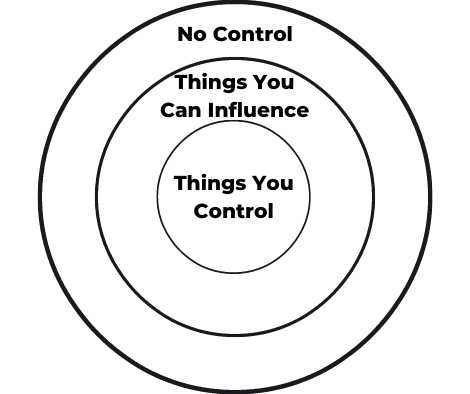About Author
Brett's writing has been featured by outlets like Outreach Magazine, Church Tech Today, and the Unstuck Church Group. Brett's courses on church marketing have over 10,000 students in 143 countries. Brett is also the author of The Digital Ministry: Reaching the ends of the earth without leaving home and is the marketing director at Clickmill.co. Brett has consulted with ministry leaders internationally, helping them create custom marketing strategies that get results. After four years of Christian college, Brett worked at Christian discipleship schools, Christian camps, and was a Youth Ministry Directory at the Salvation Army. He later spent six years in sales and marketing. Through Clickmill, Brett helps ministry leaders implement effective digital marketing strategies so they can reach more people, more effectively. Brett and his wife Siomara live in Honolulu, HI.
Locus Of Control & Resource Allocation (Reedited)
Hello and welcome back, in this video I want to share with you an essential principle for effective resource management in your ministry: focusing on what you can control. Let’s explore how this mindset can help you optimize your resources and reduce anxiety.
Focusing your recourses on things that you cannot control is one of the best ways to waste your ministry resources.
Consider the apostle Paul. Nowhere in the New Testament does it say that Paul put his time or energy into getting out of prison.
Paul didn’t have control over that circumstance so he didn’t worry about it. He didn’t waste his limited resources on something he couldn’t control.
Instead, Paul sat in prison and expended his resources writing letters to give the Christian churches guidance.
This was something Paul could control.

In the image above, you will see an image of a locus of control. A locus of control helps someone to understand what they do and do not have control over. You can see in the image, that there are some things that you have full control over. This primarily includes yourself (your beliefs, thoughts, emotions, and actions) and your possessions. Next, there are things and people you can influence. Finally, there are things you have no ability to influence – like the political climate, wars, what people post on social media, and what the president does or doesn’t do.
Part of abiding by the first rule of recourse management – Don’t lose resources – is to think carefully before putting resources into things that you can’t control. If you have no ability to impact something that is already non-functional, no amount of resources will make a difference. Therefore, all the resources you use on it will be wasted.
For Example: I have a garden in my yard that I have full control over. If there is a problem, I would find a solution so that my garden can produce as much fruit as possible.
However, I would never sit around inspecting my neighbor’s garden because I am unable to control what happens over there. It’s a complete waste of my time to fret over the white flies and leaf miners infesting someone else’s plants.
Not only this, but trying to control the uncontrollable will make you extraordinarily anxious.
People who struggle with anxiety tend to have 1 thing in common: they’re constantly thinking about things they cannot control. It’s as if their favorite question is “what if?” “What if I fail?” “What if I’m humiliated?” “What if I feel like I did that one time in second grade?” “What if XYZ happens?” “What if” statements produce anxiety because they focus on an uncontrollable future event.
Never lose resources by spending your time, attention, energy, money, or decisions on things outside your locus of control.
Ministry Example: Occasionally pastors will use their platform to explain some recent event that the church has little or no ability to impact. This is a great example of wasting the ministry’s time, and also the audience’s attention. Current events are important, but if discussing them doesn’t produce fruit, they should be skipped in favor of discussing how to meet the needs of the people in and around your ministry.
The exception to this rule would be if you knew the probability of getting a return on your resources, and that probability had a higher likelihood of a payoff than if you had put the resources into something you could control.
Investing in my mentor’s business vs investing in my own business vs investing in the stock market example.
[Outro] By focusing on what you can control, you can optimize your ministry resources, reduce anxiety, and make a more significant impact on your congregation. Remember to invest your time, attention, energy, money, and decisions wisely.
[Engaging Commenters] Now, I’d like to hear your thoughts. How do you focus on what you can control in your ministry? Have you experienced any positive changes as a result? Share your experiences and insights in the comments below.
VIDEO NOTES CHAT GPT:
Learning from Apostle Paul
Consider the apostle Paul, who didn’t waste his resources trying to get out of prison – a circumstance beyond his control. Instead, he used his time and energy to write letters to guide the Christian churches, something he could control.
Understanding the Locus of Control
The concept of locus of control helps us understand what we can and cannot control. You have full control over yourself, your beliefs, thoughts, emotions, actions, and possessions. Next, there are people and things you can influence. Finally, there are things beyond your influence, like political climate or social media posts.
Rule of Resource Management: Don’t Lose Resources
To abide by the first rule of resource management, think carefully before investing resources into things beyond your control. No amount of resources will make a difference in non-functional situations, and they will ultimately be wasted.
Example: The Garden Analogy
I have full control over my garden, so I find solutions to maximize its fruit production. However, it’s a waste of time to worry about issues in my neighbor’s garden, as I have no control over it.
Anxiety and the Uncontrollable
Trying to control the uncontrollable often leads to anxiety. Those struggling with anxiety tend to focus on “what if” questions, which are about uncontrollable future events. Don’t lose resources by worrying about things outside your locus of control.
Ministry Example: Avoiding Unproductive Discussions
Sometimes pastors use their platform to discuss recent events that the church cannot impact, wasting the ministry’s time and the audience’s attention. Unless discussing these events directly benefits the congregation, focus on meeting the needs of the people in and around your ministry.
The Exception to the Rule
An exception to this rule exists when you know the probability of getting a return on your resources and that probability has a higher likelihood of payoff than investing in something you can control, like investing in a mentor’s business or the stock market.
DISCUSSION QUESTIONS: Now, I’d like to hear your thoughts. How do you focus on what you can control in your ministry? Have you experienced any positive changes as a result? Share your experiences and insights in the comments below.


Leave a Reply